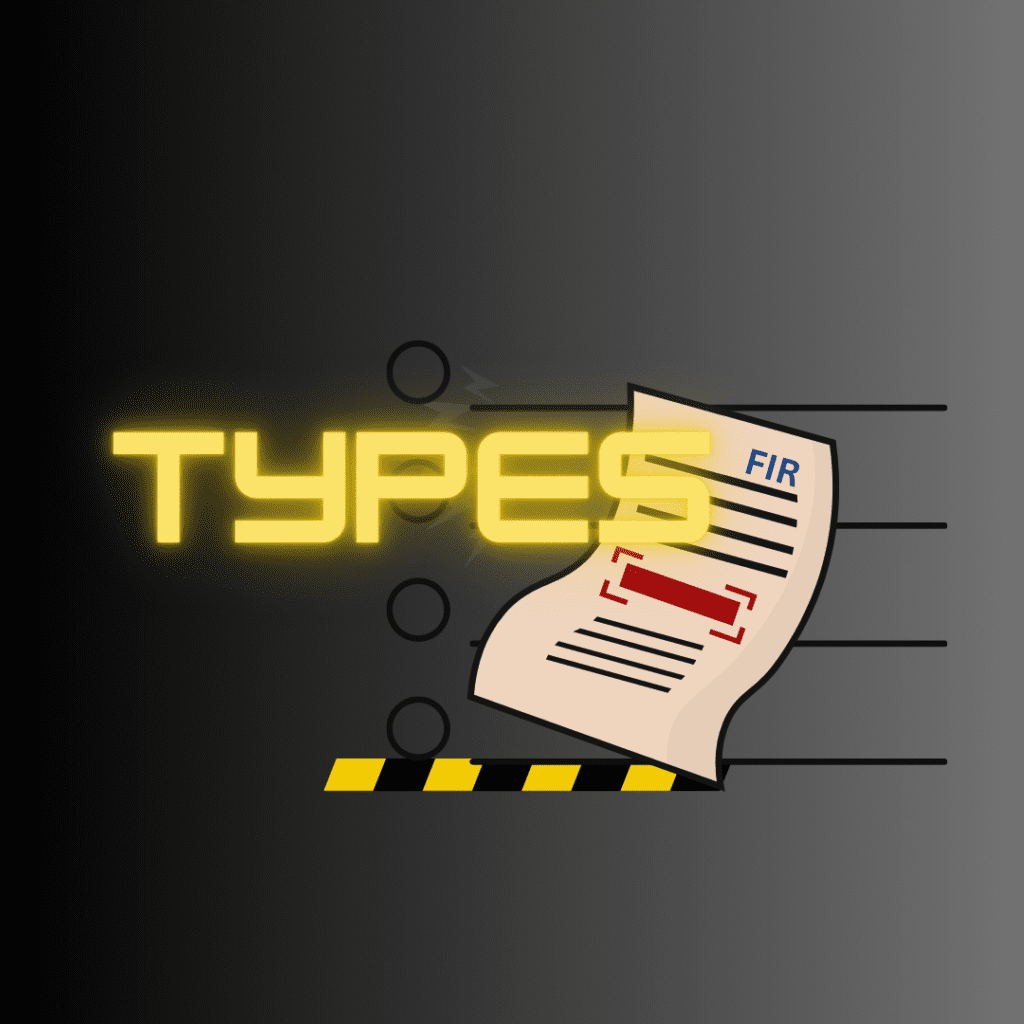Om Prakash Ambedkar v. State of. Maharashtra
Facts
The applicant is a practicing advocate and on 31.12.2011 at about 11.30 to 11.40 p.m. the policeman (appellant) humiliated the applicant. Therefore, the applicant went to Police Station on 3/1/12 to lodged a report at Police Station, Digras. But police did not accept the same. Therefore, he submitted one application to the Bar Association Digras on 3/1/12 and thereafter, the Bar Association supported the applicant and thereafter, the grievances were raised before the Superintendent of Police at Yavatmal but the police authorities were avoiding to register the offence, though the offences are cognizable. Hence, he filed this application on 06.01.2012.
History of the case
The complainant filed an application under Section 156(3) of the Code of Criminal Procedure, 1973 (CrPC) before the Judicial Magistrate First Class, Digras. In this application, he requested the Magistrate to direct the police authorities to register
the FIR based on his earlier complaint. After reviewing the application, the accompanying reports, and legal submissions,
the Judicial Magistrate First Class, Digras, found that there were prima facie allegations indicating the commission of cognizable offences under Sections 323, 294, 500, 504, and 506 of the Indian Penal Code, 1860 (IPC). Consequently, the Magistrate directed the Digras Police Station to register the FIR and initiate an investigation as per Section 156(3) of the CrPC.
The appellant, aggrieved by the Magistrate’s order, filed an application under Section 482 of the CrPC before the High Court of Judicature at Bombay, Nagpur Bench, challenging the legality of the order. However, the High Court, through its judgment dated October 16, 2019, dismissed the application and affirmed the order of the Magistrate, thereby upholding the directive to register the FIR and proceed with the investigation.
The appellant has now approached the Supreme Court by filing the present appeal against the judgment of the High Court.
Issues
1.) Whether the alleged act of police are under discharge of his official duties ?
2.) Whether there is an application of mind on the part of Magistrate ?
3.) Whether the test of obscenity has been followed under Section 294 of IPC or not ?
4.) Whether there are ingredients present to constitute the offence under Section 504 and 506 of IPC ?
Arguments in advance
1.) Whether the alleged act of police are under discharge of his official duties ?
As per the ratio laid down in the cases of in 1) Bhavarabai W/o Parashramji Atal v. Sanjay Ramchandra Gundhewar and 2) Narayandas S/o Hirlalji Sarda and Ors v. State of Maharashtra it can be deduce that cognizable offence is made out from the allegations levelled by the applicant. Section 294 is cognizable and it appears from the complaint that the applicant has tried to lodged the report at PS Digas on 3.1.2012 but police has not registered theoffence. Furthermore there is no bar to register the offence against the police as under Section 197 of Cr.P.C. as the act of the policeman was not in discharge of his official duties.
As per the ruling of Honourable Bombay High court in the case of NandkumarS. Kale v. Bhaurao & State of Maharashtra Vs. Devhari Devsingh Pawar while going through the allegations made by the applicant in the complaint it appears that, the police abused him and threatened to kill him and also humiliated the complainant. With due respect to the ratio laid down in the above decisions, the alleged act of the police are not in discharge of official duty. Hence the previous sanction under Section 197 CrPC is not necessary.
2.) Whether there is an application of mind on the part of Magistrate ?
Section 156(3) of the Cr.P.C. is invoked by the complainant when the police authorities decline to register a First Information Report. In such circumstances, a private complaint may be made in the court of the Judicial Magistrate and the complainant may pray that police investigation be ordered under Section 156(3) of the Cr.P.C. However, it is the discretion of the concerned Magistrate whether to order police investigation under Section 156(3) of Cr.P.C. or take cognizance upon the complaint and issue process or dismiss the complaint under Section 203 of Cr.P.C. Over a period of time and in view of many decisions of this Court, if the officer in-charge of the concerned Police Station for some reasons declines to register the FIR, then the law has left it open for the complainant to file an appropriate application before the Magistrate and pray for police investigation.
Once an order is passed for police investigation under Section 156(3) of the Cr.P.C., then it becomes a police case. At the end of the investigation the police may either file a charge-sheet or file an appropriate closure report. However, what is important to observe is that whenever any application is filed by the complainant before the Court of Judicial Magistrate seeking police investigation under Section 156(3) of the Cr.P.C., it is the duty of the concerned Magistrate to apply his mind for the purpose of ascertaining whether the allegations levelled in the complaint constitute any cognizable offence or not. In other words, the Magistrate may not undertake the exercise to ascertain whether the complaint Is false or otherwise, however, the Magistrate is obliged before he proceeds to pass an order for police investigation to closely consider whether the necessary ingredients to constitute the alleged offence are borne out on plain reading of the complaint.
In the case on hand, it appears that the Magistrate passed an order directing police investigation mechanically and without ascertaining whether the allegations levelled disclose commission of any offence or not.
3.) Whether the test of obscenity has been followed under Section 294 of IPC or not ?
It is to be noted that the test of obscenity under Section 294(b)IPC is whether the tendency of the matter charged as obscenity is to deprave and corrupt those whose minds are open to such immoral influences.
In R. v. Hicklin it is deduced the test of obscenity is this, whether the tendency of the matter charged as obscenity is to deprave and corrupt those whose minds are open to such immoral influences.
In Roth v. United States the test of “obscenity” is the ‘substantial tendency to corrupt by arousing lustful desires’. Mr Justice Harlan observed that in order to be “obscene” the matter must “tend to sexually impure thoughts”. I do not think that the words uttered in this case have such a tendency…” It has to be noted that in the instance case, the absence of words which will involve
some lascivious elements arousing sexual thoughts or feelings or words cannot attract the offence under Section 294(b). None of the records disclose the alleged words used by the accused. It may not be the requirement of law to reproduce in all cases the entire obscene words if it is lengthy, but in the instant case, there is hardly anything on record. Mere abusive, humiliating or defamative words by itself cannot attract an offence under Section 294(b) IPC.
To prove the offence under Section 294IPC mere utterance of obscene words are not sufficient but there must be a further proof to establish that it was to the annoyance of others, which is lacking in the case. No one has spoken about the obscene words, they felt annoyed and in the absence of legal evidence to show that the words uttered by the appellant- accused annoyed others , it cannot be said that the ingredients of the offence under Section 294(b)IPC is made out.
Obscene act for the purpose of Section 294 has a particular meaning. Mere abusive, humiliating or defamatory words by themselves are not sufficient to attract the offence under Section 294 of the IPC.
4.) Whether there are ingredients present to constitute the offence under Section 504 and 506 of IPC ?
Mere abuse , discourtesy, rudeness or insolence, may not amount to an intentional insult within the meaning of Section 504, IPC if it does not have the necessary element of being likely to incite the person insulted to commit a breach of the peace of an offence and the other element of the accused intending to provoke the person insulted to commit a breach of the peace or knowing that the person insulted is likely to commit a breach of the peace. Each case of abusive language shall have to be decided in the light of the facts and circumstances of that case and there cannot be a general proposition that no one commits an offence under
Section 504, IPC if he merely uses abusive language against the complainant.
In King Emperor v. Chunnibhai a Division Bench of the Bombay High Court pointed out that: “To constitute an offence under Section 504, I.P.C. it is sufficient if the insult is of a kind calculated to cause the other party to lose his temper and say or do something violent. Public peace can be broken by angry words as well as deeds.Section 506 of the IPC makes it clear that a part of it relates to crimina intimidation. Before an offence of criminal intimidation is made out, it must be established that the accused had an intention to cause alarm to the complainant.
In the FIR, all that the first informant has stated is that abusive language was used by the accused persons. What exactly was uttered in the form of abuses is not stated in the FIR. One of the essential elements, as discussed above, constituting
an offence under Section 504 of the IPC is that there should have been an act or conduct amounting to intentional insult. Where that act is the use of the abusive words, it is necessary to know what those words were in order to decide whether the use of those words amounted to intentional insult. In the absence of these words, it is not possible to decide whether the ingredient of intentional insult is present.”
Applying the principles as explained aforesaid, we are of the view that none of the
ingredients to constitute the offence punishable under Sections 504 and 506 of the
IPC respectively are borne out.
Judgment –
The Court held that ordinarily, Section 156(3) of the CrPC is invoked by the complainant when the police authorities decline to register a First Information Report (FIR) 156(3) of CrPC or take cognizance upon the complaint and issue process or dismiss
the complaint under Section 203 of CrPC. Once the order for police investigation is passed under Section 156 (3) of CrPC it
becomes a police case and at the end of investigation the police may either file a chargesheet or closure report. However, whenever an application for investigation is made under Section 156 (3) to the Magistrate it is his duty to apply his mind for the purpose of ascertaining if the allegations levelled constitute any cognizable offence or not. The Court held that in the present facts the ingredients of the offence alleged are not at all made out. This reflects the mechanical manner in which the order for
police investigation under Section 156 (3) has been passed.
In the light of the word ‘may’ used in Section 156 (3) of CrPC the Magistrate is required to apply his mind before ordering investigation under Section 156 (3) of CrPC.
The Court thus, held that in the facts of the present case continuance of investigation by the police will only be an abuse of process of law.
How section 175 (3) of BNSS different from section 156 (3) of Crpc
The ruling gains importance as BNSS introduces stricter safeguards for orderinginvestigations under Section 175(3), replacing Section 156(3) CrPC:
1. Prior Application to Superintendent of Police (SP) – Before approaching a Magistrate, complainants must first apply to the SP and submit proof.
2. Magistrates Must Conduct a Preliminary Inquiry – Unlike the CrPC, where investigations could be ordered based on a prima facie case, BNSS requires Magistrates to conduct an inquiry first.
3. Consideration of Police Submissions – Before directing an investigation, Magistrates must review police reasons for refusing to register an FIR. Additionally, Section 175(4) BNSS adds extra protection for public servants, requiring a report from a senior officer before an investigation is permitted.
Conclusion Note
This decision establishes a precedent for more stringent judicial examination before ordering police investigations, ensuring that frivolous complaints do not impede law enforcement. With the enhanced protections in BNSS, 2023, the decision promotes procedural fairness and prevents the abuse of the legal system.
Written by Team Member- Ms. Varsha Dubey
Incase, You wish to discuss, and talk on any such matter that, ‘You may need help with’. Feel free to contact us. Our team at www.legalwellbeing.in shall be happy to assist.
















